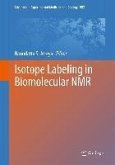Recent technological advances have enabled comprehensive determination of the molecular composition of living cells. The chemical interactions between many of these molecules are known, giving rise to genome-scale reconstructed biochemical reaction networks underlying cellular functions. Mathematical descriptions of the totality of these chemical interactions lead to genome-scale models that allow the computation of physiological functions. Reflecting these recent developments, this textbook explains how such quantitative and computable genotype-phenotype relationships are built using a genome-wide basis of information about the gene portfolio of a target organism. It describes how biological knowledge is assembled to reconstruct biochemical reaction networks, the formulation of computational models of biological functions, and how these models can be used to address key biological questions and enable predictive biology. Developed through extensive classroom use, the book is designed to provide students with a solid conceptual framework and an invaluable set of modeling tools and computational approaches.
Dieser Download kann aus rechtlichen Gründen nur mit Rechnungsadresse in A, B, BG, CY, CZ, D, DK, EW, E, FIN, F, GR, HR, H, IRL, I, LT, L, LR, M, NL, PL, P, R, S, SLO, SK ausgeliefert werden.









